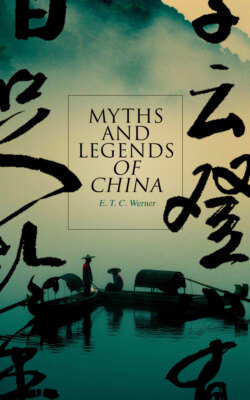Читать книгу Myths and Legends of China - E. T. C. Werner - Страница 47
На сайте Литреса книга снята с продажи.
The Prerequisites to Myth
ОглавлениеBut the mere increase of constructive imagination is not sufficient to produce myth. If it were, it would be reasonable to argue that as intellectual progress goes on myths become more numerous, and the greater the progress the greater the number of myths. This we do not find. In fact, if constructive imagination went on increasing without the intervention of any further factor, there need not necessarily be any myth at all. We might almost say that the reverse is the case. We connect myth with primitive folk, not with the greatest philosophers or the most advanced nations—not, that is, with the most advanced stages of national progress wherein constructive imagination makes the nation great and strong. In these stages the philosopher studies or criticizes myth, he does not make it.
In order that there may be myth, three further conditions must be fulfilled. There must, as we have seen, be constructive imagination, but, nevertheless, there must not be too much of it. As stated above, mythology, or rather myth, is the unscientific man's explanation. If the constructive imagination is so great that it becomes self-critical, if the story-teller doubts his own story, if, in short, his mind is scientific enough to see that his explanation is no explanation at all, then there can be no myth properly so called. As in religion, unless the myth-maker believes in his myth with all his heart and soul and strength, and each new disciple, as it is cared for and grows under his hands during the course of years, holds that he must put his shoes from off his feet because the place whereon he treads is holy ground, the faith will not be propagated, for it will lack the vital spark which alone can make it a living thing.
